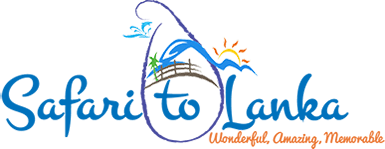Before you start anything, you must know something about it, it applies to a holiday tour too. We would like to give you the essential tips and checklist for your Sri Lankan tour. We hope these Before You Start travel tips make your trip smooth and peaceful.
Time To Visit Sri Lanka.
Sri Lanka is a tropical island round-the-year season for tourists. The tourist who seeks for sun and sea are best in the Southwestern coastal area, where the most of the beach resorts and hotels are available, the best time to visit the island is from November to April. Most of the beach resorts are located in the Southwestern coastal area. In the Northwestern area, Kalpitiya is a newly developing tourist attraction place after the end of civil war. East being developed with hotels, infrastructure and other facilities to make it as a new tourist destination in Sri Lanka.
Charmingly cool and relatively dry place is the central highlands and January to April is the season. June and August when festivals and pageants are held through the country are in the mid-season.
Visa.
Your passport must be valid for 6 months beyond the stay period. Tourist visas are obtained on arrival or you can apply online. Depending on your nationality, the fees are variable. More details are available online at www.eta.gov.lk. You can take advantage of our optional visa assistance services to have Safari To Lanka’s visa experts guide you and your group through the visa process step by step. This will ensure that you’ve got everything you need to have a successful trip.
Language.
Sri Lanka has two official languages, they are Sinhala and Tamil - with English as a link language. Most people have some knowledge of English, and signboards and official forms are in Sinhala, Tamil and English. We have defiant language speaking guides fit your language.
Time Zone.
Sri Lanka's Standard Time zone is +5.30 of GMT.
Currency.
Sri Lankan rupee (LKR) is the currency of Sri Lanka and notes are 5,000, 2,000, 1,000, 500, 100, 50, 20 and 10. Throughout the country, all major credit cards are accepted, ATMs are widely available. However, you have to keep the currency note for smaller stalls and souvenir sellers. If you need currency exchange or traveller's cheques your guide can help you.
Security.
In general, the threats to personal security for travellers in Sri Lanka are remarkably very very small. Sri Lanka has the Tourist Police division, special setup to save the needs of the tourists. you can contact them on + 94 11 2382209 anytime. Even though it is more pleasant to travel with the guide, not to travel alone. Keep your documents and valuables safe, either with you, in the room-safe facility found in many hotels, or with the hotel reception.
Electricity.
Electricity power is 220-240V, 50/60 cycles AC throughout the island, Multi-plug adapter is essential for phone, tablet and battery chargers. Keeping a torchlight is useful since chances are there to temporary blackout by a seasonal thunderstorm.
Clothing.
Light and loosely-fitting cotton clothes are useful at any time in hot and humid tropical climate. All though in Sri Lanka’s Hill Country, the high altitude and low cloud mean it can get quite chilly. So you need a jacket and some woollens for the hills. Don't forget waterproof clothing or an umbrella, you might get caught out in a sudden tropical shower or full-blown downpour. Comfortable shoes, sandals are essential.
Medicine and Health Care.
When you are visiting the tropics, maybe you're new to the weather, heat and humidity, and mild dehydration can cause skin allergy and headache. Keeping some paracetamol is handy. You can find Panadol in every grocery shop in Sri Lanka. Minor health problems can be treated by doctors with practices in the clinic in the country and well-equipped private hospitals offering the latest in conventional medical and surgical therapies.
Drinking Water.
Tap water is filtered but it not advisable to drink. Always drink bottled water. The dehydration can cause a dry mouth, slight headache, weakness and lethargy. Hence remember to carry a bottle of drinking water with you and sip it frequently or more if you feel the need.
Food and Hygiene.
There are many restaurants with many varieties of foods of your choice. Always select a standard restaurant. The street foods are delicious but check with your guide the hygienic of the place before you approach. If some of Sri Lankan hot and spicy culinary delicacies feel you queasy, king coconut water is the easiest remedy for settling an upset stomach.
Photography.
Anything places related to high security or the military, like airports, dams, roadblocks is forbidden to photograph. Don’t pose beside or in front of, or in any way disrespect, a statue or image of the Buddha. Some places need camera permission.
Sunscreen.
To avoid sunburn when you flop onto the beach or poolside lounger remember to apply a sunscreen product. Sunburn is strong in tropics and it might still haze and light cloud.
